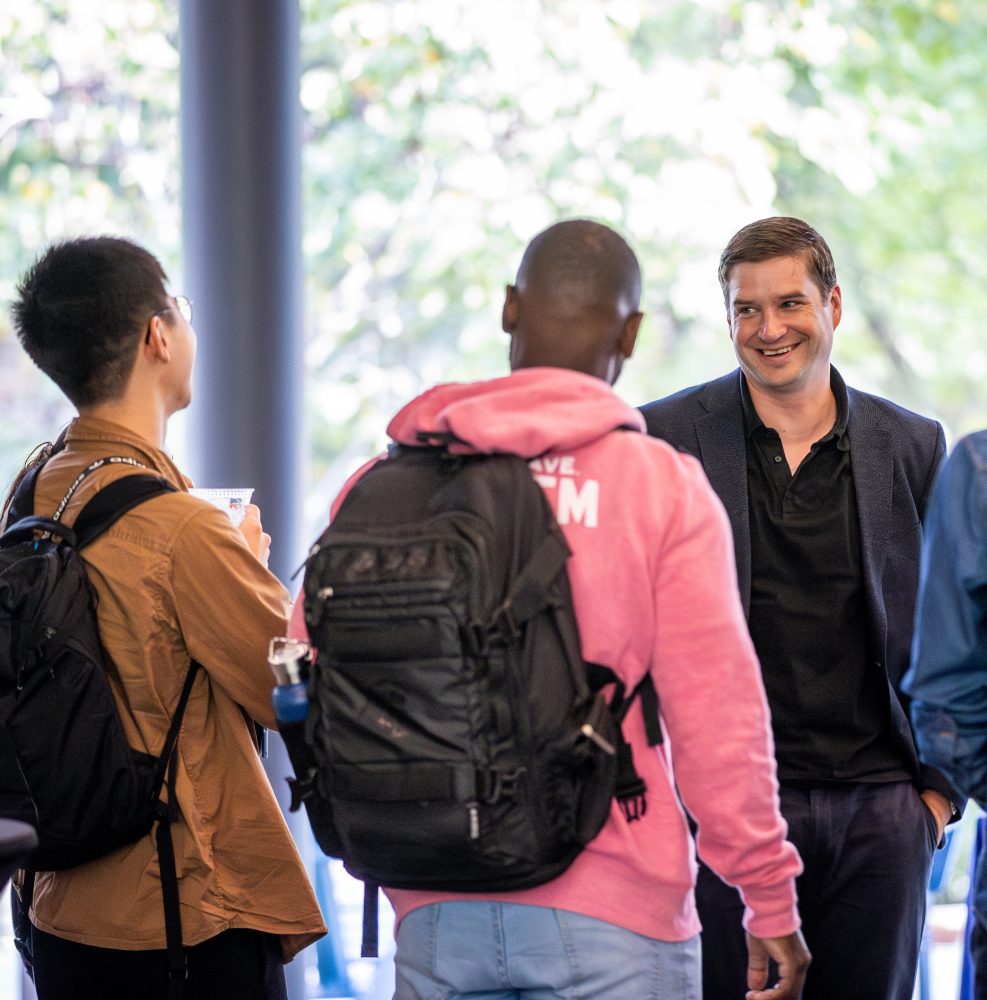Cal Newport is on a mission to help us live well and work deeply in our high-tech world. Newport is a bestselling author. His seven books, with titles like Deep Work, Digital Minimalism, and A World Without Email, have sold over two million copies worldwide. He’s a contributing writer for the New Yorker, weighing in on hot button tech issues of the day. He is also a professor and a founding member of Georgetown’ University’s Center for Digital Ethics.
He joins host Judith Kelley to talk productivity and focus in the face of communication overload.
Conversation Highlights
Responses have been edited for clarity.
Why it’s harmful to check email while trying to work
A lot of people say, “I’m a single tasker. I don’t keep multiple windows open. I don’t have my inbox open next to Microsoft Word when I’m writing.” But what they were doing instead is every five to six minutes doing a quick check, “Let me just check my inbox real quick. Let me see what’s going on in my phone.”
The neuroscience teaches us, those quick checks could be almost as bad because they initiate this whole neurological cascade of network switching inside our heads which we then arrest just a couple of minutes into our inbox check and then try to switch our network back to what we’re working on. [Going back and forth is between email and work is] really a killer. When people thought they were focusing, they weren’t. Actual uninterrupted time of non-trivial duration, that has became very rare. That has almost entirely disappeared from a lot of knowledge work sectors.
On email overload
In the workplace there’s not really a policy prescription for email overload. The way we work is bad for everybody. Burns out workers, it’s unproductive. Bosses don’t like it. No one likes it. It’s not a good way to work. But we’re sort of stuck right now because productivity is personal. How you organize your work is up to you. And in that context, we’ve all fallen into this easy but terrible way of collaborating [via email].
On how to change the way we work and communicate
Work on something until a stopping point, then do something else. And that includes communication. Do not interweave communication with the work you’re doing. If you find that’s very difficult, almost certainly the thing that’s making that difficult is that you have back and forth conversations happening with unscheduled messages. Focus all of your internal system reform on, “how do I minimize the number of unfolding, unscheduled back and forth conversations I do in email and Slack?”
Don’t just think generally, “I should check my email less.” [Try things like] morning check-ins, twice a day [check-ins], or maybe there’s a set hour where you can always call me during this period.
On personal life and phones: develop a minimalist tech mindset
I suggest people temporarily push everything off their plate — every optional piece of technology, social media, YouTube videos, video games, spend a few weeks getting back in touch with what you really want to do with yourself and your time, and then only add things back in that are real wins. So it’s the Marie Kondo approach, right? Empty the whole thing and only put back in the stuff you really want to keep.
I ran an experiment where I had 1600 people go through the exercise of clearing everything out and then putting things back in that mattered. And what I found is this could be very effective if during that period you are very active at experimenting with new behaviors, doing a lot of self-reflection, joining things, trying things. If you’re very active in figuring out what you want to do with your time, then this seems to be really sustainable.
People who do a detox, and just white knuckle it and say, I just want to use tech less for a little while to clear out the toxins, they go right back to it.
- Guest: Cal Newport
- Read the transcript
Cal Newport was on Duke’s campus to give the fall 2023 Crown Lecture in Ethics.


